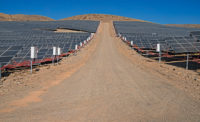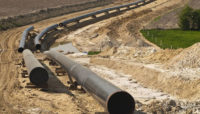A federal appeals court on April 5 ruled against two Clean Air Act rules set by the U.S. Environmental Protection Agency under the Trump Administration— one that delayed a requirement for states to meet landfill pollution controls and another that exempted most stationary air pollution sources from protective standards.
The Biden Administration in March asked the U.S. Court of Appeals for the District of Columbia to vacate the rule that delayed implementation of 2016 limits to methane released from solid waste landfills by installing controls to capture emissions.
Vacating the rule allows the Biden EPA to bypass a lengthy process to repeal a rule and instead begin a new rulemaking.
The Trump rule had delayed until 2021 the mandate for states to have a plan to implement landfill standards by November 2017 or elect to be subject to a federal plan. California and eight other states filed a lawsuit opposing the delay.
“It’s urgent that the Biden administration finalize a plan to reduce landfill pollution nationwide as soon as possible,” Rachel Fullmer, senior attorney at the Environmental Defense Fund said, noting that landfills are the third leading source of methane emissions.
The emissions rule applies to about 1,900 U.S. solid waste landfill sites. Waste industry groups had sought the rule delay by the Trump-era EPA, but no objections were filed to the court action.
In a separate action, the D.C. appeals court vacated a last-minute Trump administration rule published Jan. 19 that exempted stationary sources of air pollution from regulation unless they emitted 3% or more of the total amount of U.S. greenhouse gas emissions.
Critics called the 3% figure an arbitrary threshold without legal or scientific justification.
California and others claimed that EPA under the Trump administration reinterpreted its legal authority to regulate emissions of greenhouse gases from any source category except fossil fuel power plants—eliminating such sources as oil and gas refineries and other sources of emissions that contribute to climate change.
“EPA’s new, artificially constrained interpretation of its own authority in the final rule would prevent [the agency] from using section 111 [of the Clean Air Act] to regulate GHG emissions from source categories that are responsible" for more than half of all such emissions in the U.S. from stationary sources, the environmental group said.
The new rule creates a “categorical barrier” for states and other governments to petition EPA to control greenhouse gas emissions from any category but the fossil fuel plants, said EDF.
“The court decision leaves the Biden administration free to set standards for climate pollution based on solid science and law," an EDF attorney said.
No objections were filed to this ruling as well.






Post a comment to this article
Report Abusive Comment